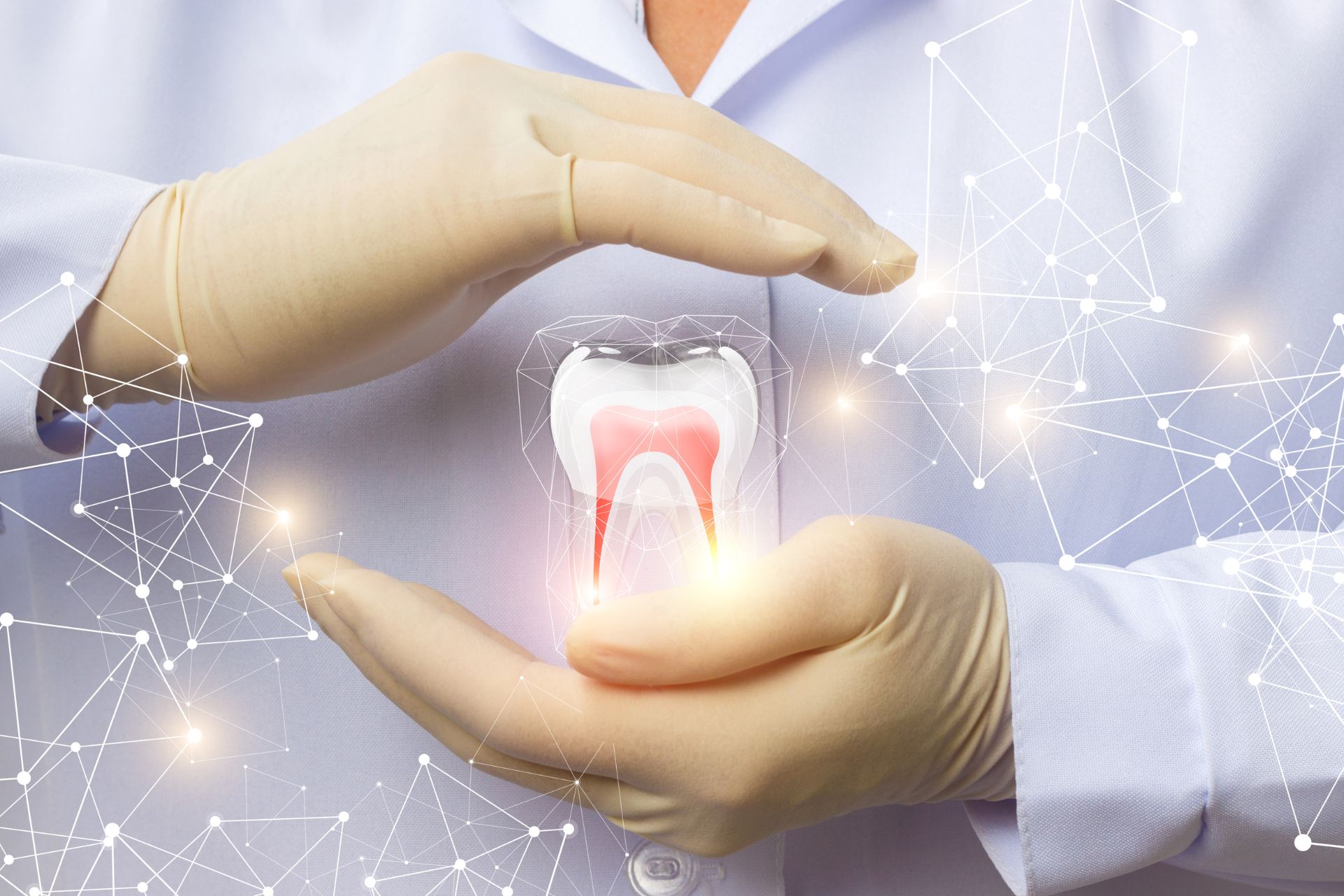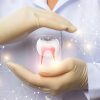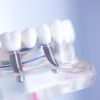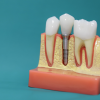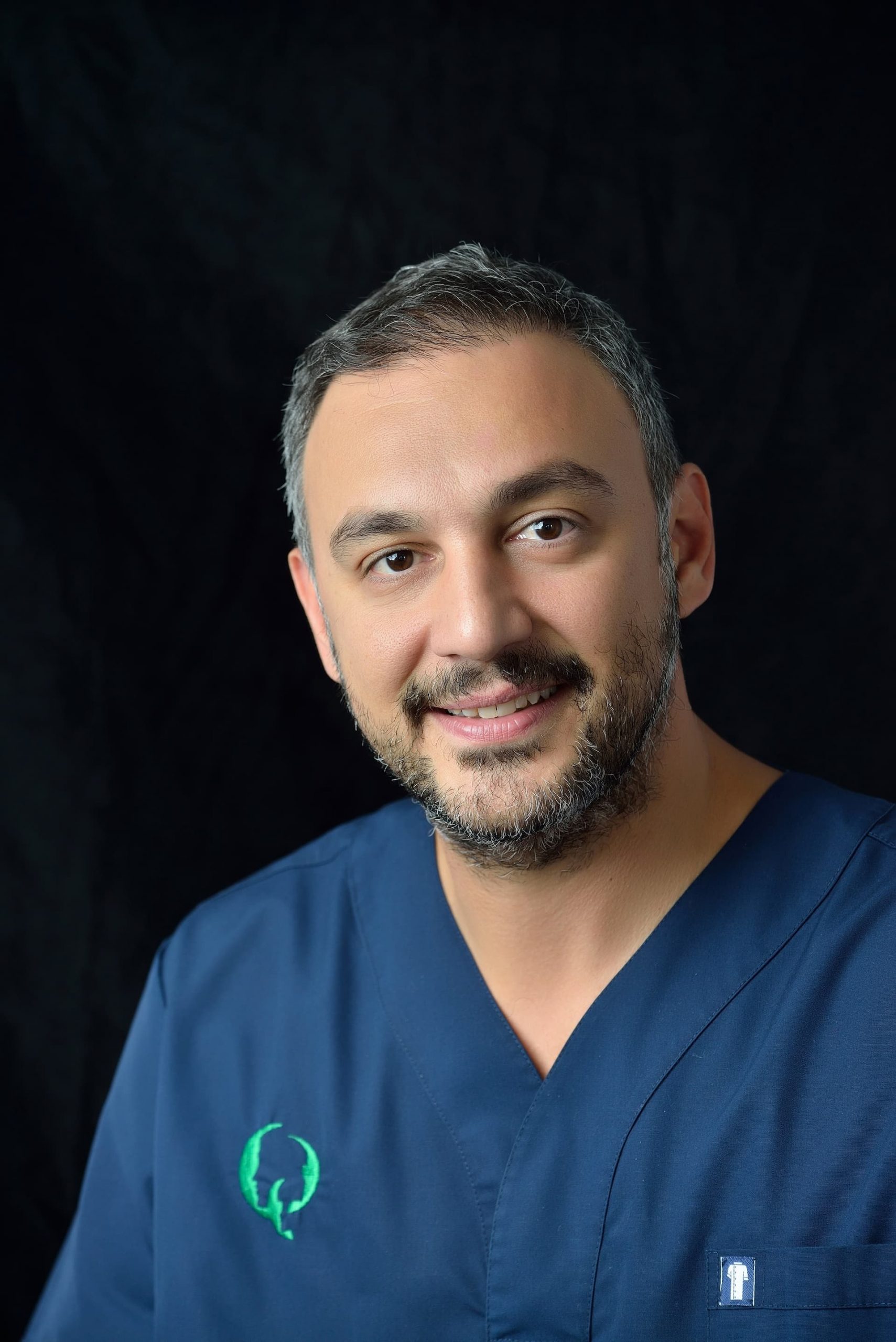Why is dental implant care important?
Treatment with dental implants takes a long time and is demanding. However, they are the ideal solution for partial or total tooth loss or destruction. How will you ensure your implants last over time while enjoying their benefits?
Dental implant care with proper brushing and regular visits to the dentist is the short answer. However, we feel it is important to detail all of the proper hygiene tactics:
Dental implant care and peri-implantitis
Dental implants do not have dental substance, so they are not at risk of decay like natural teeth. The disease they may develop is called peri-implantitis and is an inflammation of the tissues around the implant. This inflammation, as long as it is not treated in time, leads to the loss of the bone that supports the implant, resulting in the latter needing removal due to mobility.
In order to avoid peri-implantitis, you should first brush your teeth twice a day. The first one after your morning meal and the second one before going to bed at night.
Dental implant care and proper teeth-brushing
Dental implants are brushed in the same way as natural teeth, i.e. with a soft brush. You need to carefully clean the area between the tooth and the gum.
Because the area between the tooth and the gum is small in width, you should use toothbrushes with only two rows of bristles to have better control over their action. Otherwise, use a pair of scissors to cut some rows of bristles from a conventional toothbrush to make it easier to clean the area between the implant and the gum.
It is also important to clean the implants from all surfaces. That is, the front (towards the cheek), the back (towards the tongue or palate) and the two lateral surfaces adjacent to the adjacent teeth or implants. The toothbrush can be used to clean the front, back and chewing surfaces of the implant restoration. For effective cleaning of the lateral surfaces, you need additional dental floss and interdental cleaning brushes.
Dental implant care and dental floss
Flossing to clean the area between the implant and the adjacent tooth is essential. If you have only one implant then you can use simple flossing. However, if you have a large post-implant restoration (restoration of one or more tooth-denuded areas of the jaw) then it is recommended to use a thicker dental floss that you can find in pharmacies.
Finally, the interdental brushes available in many sizes are particularly useful. Choose those that fit between your teeth with light pressure but without too much resistance.
Although implants replace your teeth, they do not alert you with minor discomfort as natural teeth sometimes do when they experience a problem.
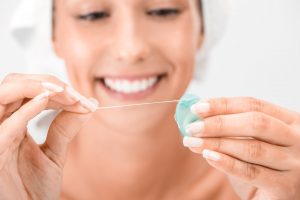
Dental implant care and visit to the dentist
Visiting the dentist to check all teeth and implants is necessary and should be done at least twice a year. Special implant cleaning tools can be used to remove tartar that collects on the implants without disturbing the delicate implant surface. In addition, the dentist, if deemed necessary, can remove a large prosthetic work to better clean it.
Once a year, the dentist takes an x-ray of the area to determine if the level of bone around your implant is being maintained. The purpose of this procedure is to possibly reveal incipient peri-implantitis, which has a good prognosis if treated in time. The technique for treating periodontitis and peri-implantitis using the EmunDo protocol is a state-of-the-art method performed strictly and only by a specialized team of doctors with full training and years of experience.
Contact your dentist as soon as possible in case you feel any mobility in your prosthetic work. If this problem is left without timely correction, then local inflammation of the tissues around the implant (peri-implant mucositis) can rapidly develop into peri-implantitis.
With these simple actions your implants can last you “a lifetime”! Don’t neglect dental implant care and enjoy their benefits for many years to come.
Ideal candidate for dental implants
As long as the patient does not belong to any of the population groups that are contraindicated for the use of implants (chronic diseases such as diabetes, hemophilia or immune diseases), Dental Implants are the Most Reliable and Safe Method for the Restoration of Lost Teeth both in terms of functionality, effectiveness and aesthetics and in terms of the total cost of treatment compared to a dental bridge. Tooth implants are superior to any other prosthetic work proposed for tooth loss or destruction, and the experience and full training of our medical team guarantees a lasting smile that shines.
